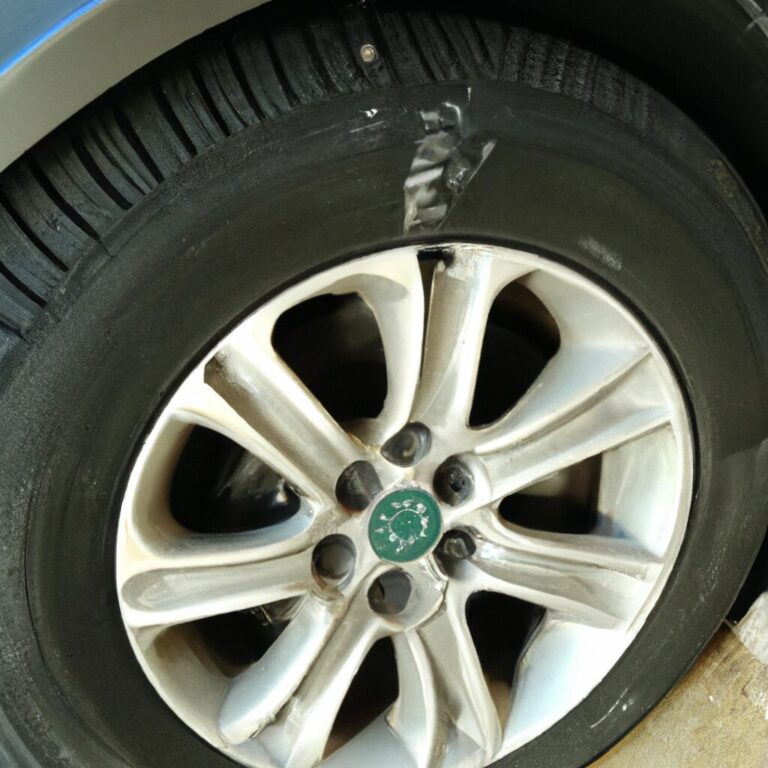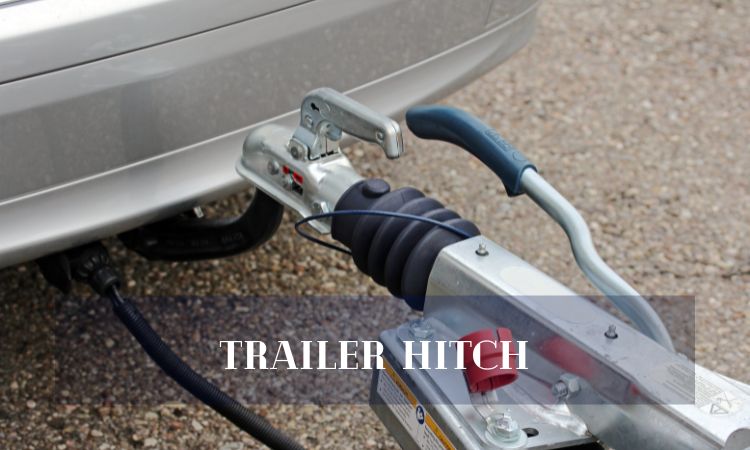How Long Will a Car Battery Last Without an Alternator
Have you ever wondered just how long your car battery can power your vehicle without an alternator to keep it charged? The answer might surprise you, as it's not as straightforward as you might think.
Factors such as battery health, usage, and the electrical load on your vehicle all play crucial roles in determining how long your battery will last in such a scenario.
But what happens when the battery's power runs out? Stay tuned to discover the implications and learn some essential tips to navigate this automotive conundrum.
Key Takeaways
- Battery can run 30 minutes to an hour alone, impacted by capacity and electrical load.
- Minimize usage of power-hungry accessories to prolong battery life.
- Regularly monitor battery's state of charge and address alternator repairs promptly.
- Understanding remaining capacity is crucial for sustaining battery power without an alternator.
Factors Affecting Car Battery Lifespan Without Alternator
The longevity of a car battery without the support of an alternator is significantly influenced by various critical factors. When an alternator fails, the car battery becomes the sole provider of electrical power for the vehicle. The battery's capacity plays a crucial role in determining how long it can sustain the electrical load. A larger capacity battery can generally last longer without the alternator functioning.
Additionally, the electrical load on the battery has a direct impact on its lifespan. Minimizing the use of electrical components such as lights, air conditioning, and audio systems can help extend the battery's operation time.
If the alternator isn't repaired promptly, the continued reliance on the battery can lead to starting issues once the battery is depleted. It's essential to monitor the battery's charge level and minimize electrical usage to prevent being stranded due to a depleted battery. Timely alternator maintenance is key to avoiding prolonged reliance on the battery and potential starting problems.
Impact of Alternator Failure on Battery
In an automotive system, the failure of the alternator has a direct and immediate impact on the battery's performance and longevity. When the alternator fails, the battery becomes the sole provider of electrical power, which can significantly reduce its lifespan and efficiency.
Here are some key points to consider:
- The battery will need to power all electrical components in the car, increasing the strain on its capacity.
- Without the alternator to recharge the battery, the electrical load can quickly deplete the battery's energy.
- Continued reliance on the battery without alternator repair can lead to starting issues as the battery loses its charge over time.
It is crucial to address alternator failures promptly to prevent excessive strain on the battery and potential starting problems. Monitoring electrical usage and minimizing non-essential functions can help extend the time the car can run on battery power before encountering starting issues.
Duration a Car Battery Can Run Alone
When considering the duration a car battery can operate independently, factors such as battery capacity, electrical load, and overall battery condition play critical roles in determining the timeframe. A car battery can typically run for about 30 minutes to an hour without an alternator. The battery's capacity, which is measured in ampere-hours (Ah), directly influences how long the car can run on battery power alone.
Additionally, the electrical load on the battery, including lights, radio, and other accessories, can shorten or extend this timeframe. It's essential to minimize the electrical load when the alternator fails to prolong the battery's power supply. However, continued reliance on battery power without alternator repair may lead to the battery draining completely, resulting in the car not starting.
Addressing alternator issues promptly is crucial to avoid complications from prolonged reliance on battery power. Proper maintenance and timely alternator repairs are key to ensuring the car's power supply and avoiding unexpected breakdowns.
Tips to Prolong Battery Life Without Alternator
To enhance the longevity of your car battery without an alternator, prioritize minimizing the electrical load by deactivating non-essential components. This action can significantly extend the battery life while you're driving without an alternator.
Additionally, keeping a close eye on the battery's state of charge is crucial to understanding how much longer it can sustain the vehicle without the alternator's support.
Tips to Prolong Battery Life Without Alternator:
- Regularly monitor the battery's state of charge to gauge its remaining capacity.
- Promptly address any alternator repair needs to avoid overburdening the battery.
- Minimize the use of power-hungry accessories like the air conditioning to reduce the electrical load on the battery.
How to Preserve Battery When Not in Use
Preserve your car battery when not in use by incorporating scheduled short drives to maintain its health and longevity. Regularly taking the car for a 15-minute drive once a week can help prevent the battery from deteriorating.
It's essential to avoid just starting the ignition without actually driving the car, as this can strain the battery. Using the secondary vehicle more often can also be a practical strategy to prevent the main car's battery from draining when it's not in use.
By engaging in regular short drives, you can ensure that the battery stays in good condition even if the car isn't used frequently. Striking a balance between using the car occasionally and protecting the battery is crucial.
Preventing Battery Drain in Parked Cars
Implementing regular maintenance practices is crucial in preventing battery drain in parked cars. When the alternator fails, taking proactive measures becomes essential to avoid being stranded due to a dead battery.
To prevent drain effectively, consider the following:
- Avoiding Excessive Use of Electronic Accessories: Using electronic devices while the engine is off can quickly deplete the battery. Limit their usage to conserve power.
- Monitoring Extreme Temperatures: Extreme heat or cold can impact the battery's performance and lead to faster drainage. Park in shaded areas or garages when possible.
- Utilizing a Trickle Charger: Connecting a trickle charger to the battery when the car is parked for extended periods helps maintain its charge levels, ensuring it's ready to go when needed.
Signs of a Failing Alternator
When faced with dimming headlights or a burning smell inside your car, it may be indicative of a failing alternator. Dimming headlights and interior lights are common signs of alternator issues. If you notice pulsing or flickering headlights while driving, this could also point to potential problems with the alternator.
Keep an eye on your dashboard warning lights; if they illuminate sporadically, it may be a red flag for a failing alternator. Additionally, a burning smell or electrical odor inside the car is another sign that shouldn't be ignored. Difficulty starting the car or experiencing frequent stalling could be attributed to a failing alternator as well.
Being vigilant and addressing these warning signs promptly can help prevent further damage to your vehicle's electrical system. If you encounter any of these symptoms, it's advisable to have your alternator checked by a qualified mechanic to ensure your car's optimal performance and safety.
Jumpstarting a Car Without Alternator Assistance
When jumpstarting a car without alternator assistance, you can temporarily power the vehicle through the battery. It's crucial to consider the pros of jumpstarting and implement necessary safety precautions.
Understanding the limitations of relying solely on the battery can help you manage the situation effectively.
Pros of Jumpstarting
Jumpstarting a car without alternator assistance can provide a temporary solution to quickly get your vehicle back on the road by utilizing the battery power to start and run for a limited time. This method offers several advantages:
- Quick Fix: Jumpstarting allows you to swiftly start the engine and resume driving.
- Utilizes Battery Power: By jumpstarting, you can rely on the battery's power to operate the vehicle temporarily.
- Cost-Effective: Jumpstarting is a cost-effective way to get your car moving without the immediate need for alternator repairs.
Jumpstarting is an effective method to get your vehicle running when the alternator isn't functioning properly. Remember to follow the correct procedures and safety precautions for a successful jumpstart.
Safety Precautions Needed
To ensure a safe jumpstarting process without an alternator, implementing proper safety precautions is crucial for preventing potential electrical hazards. When jumpstarting a car without alternator assistance, follow these safety measures:
| Safety Precautions | Description |
|---|---|
| Check Battery Condition | Ensure the battery terminals are clean and free of corrosion. |
| Use Insulated Tools | Prevent accidental short circuits by using insulated gloves and tools. |
| Avoid Sparks | Connect the jumper cables in the correct order to prevent sparks. |
Cost of Replacing a Dead Battery
Replacing a dead car battery can cost anywhere from $50 to $200, with premium options potentially reaching $300 or more, depending on the battery type and vehicle model. When considering replacing a dead battery, keep in mind the following:
- Cost Range: The replacement cost of a dead battery can vary significantly based on factors like battery type and the make and model of your vehicle.
- Professional Installation: Opting for professional installation by a mechanic may add an extra $50 to $100 to the overall cost.
- Free Services: Some auto parts stores provide complimentary battery testing and installation services when purchasing a new battery.
It's important to factor in these costs when planning for a battery replacement. Additionally, choosing a maintenance-free or AGM battery might increase the total replacement cost compared to standard lead-acid batteries. Be sure to explore your options and select the best battery type for your vehicle to ensure optimal performance and longevity.
Ensuring Battery Health During Storage
To ensure optimal battery health during storage, remember to disconnect the negative terminal to prevent parasitic drain.
It's crucial to maintain a full charge before storing the battery to prevent damage.
Utilizing a battery maintainer or trickle charger can help preserve the battery's lifespan and prevent deep discharge.
Storage Battery Maintenance
During storage, maintaining the health of your car battery is critical to ensuring its longevity and performance when needed. To keep your battery in optimal condition, consider the following:
- Utilize a trickle charger: Using a trickle charger during storage can help maintain the battery's charge level.
- Check the state of charge: Regularly monitoring the battery's state of charge is essential for long-term storage.
- Opt for climate-controlled storage: Extreme temperatures can impact battery health, so consider storing your vehicle in a climate-controlled environment to mitigate these effects.
Preventing Discharge Damage
To ensure optimal battery health during storage, disconnecting the battery or using a maintainer is crucial to prevent discharge damage and maintain readiness for future use. Extreme temperatures can expedite discharge damage; hence, storing the vehicle in a climate-controlled environment is advantageous. Regularly monitoring the battery's voltage and charge status can help prevent damage and ensure the battery retains its charge. Here is a comparison table to highlight the importance of proper storage techniques:
| Storage Method | Impact on Battery Life |
|---|---|
| Disconnecting Battery | Prevents discharge damage and extends battery life |
| Using Maintainer | Maintains battery charge and readiness for future use |
| Climate-Controlled Storage | Helps regulate temperature and minimize discharge damage |
| Regular Monitoring | Prevents damage by ensuring optimal voltage levels |
Monitoring Charge Levels
Properly monitoring the charge levels of your car battery is essential for ensuring its health and longevity during storage.
- Regularly check the battery charge levels to prevent over-discharge or complete drainage.
- Store the vehicle in a cool, dry place to maintain optimal battery capacity.
- Minimize electrical load by disconnecting the negative terminal during long-term storage.
Frequently Asked Questions
How Long Can You Drive on a Battery Without an Alternator?
You can drive a car on battery power without an alternator for about 30 minutes to an hour. It's crucial to address alternator issues promptly to avoid complete reliance on the battery for vehicle operation.
How Long Will a Battery Last if the Alternator Is Not Working?
You can expect a car battery to last for a limited time without an alternator functioning. Factors like battery capacity and electrical load influence longevity. Immediate attention to alternator failure is crucial to avoid voltage fluctuations and complete battery drain.
Can a Car Stay Running Without an Alternator?
When an alternator fails, your car can run temporarily on battery power alone. This strains the battery, affects engine performance, and risks electrical system malfunctions. Address charging issues promptly to ensure battery longevity and overall vehicle reliability.
How Long Will a Car Run With Bad Alternator?
Your car's battery lifespan when facing alternator failure depends on capacity and usage. With a bad alternator, engine performance weakens, electrical systems strain, and charging issues arise swiftly. Regular maintenance prevents depletion and stalling.
Conclusion
In conclusion, the car battery is like a lifeline for your vehicle, keeping it running smoothly even without the support of the alternator.
However, pushing it too far without addressing alternator issues is like walking a tightrope without a safety net.
Remember to take care of your battery and address any underlying problems promptly to avoid being left stranded on the road. Your car's electrical system depends on it.



